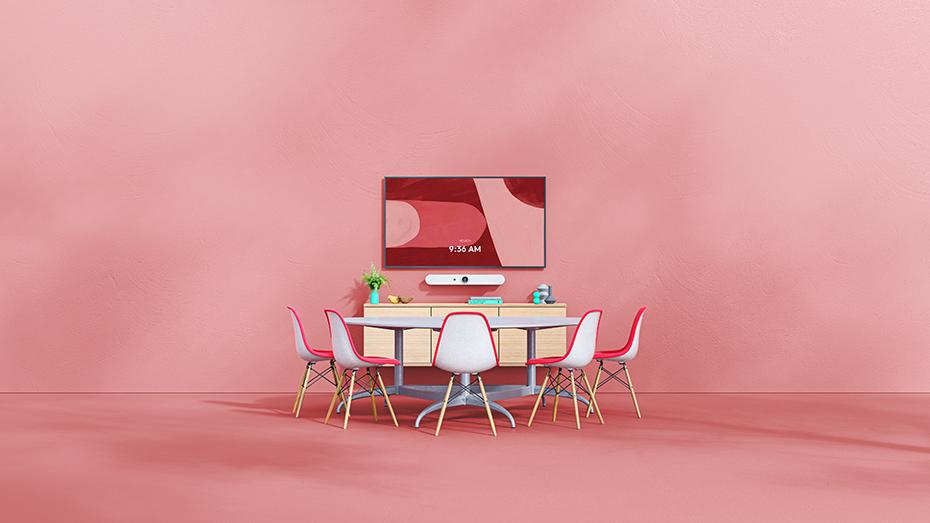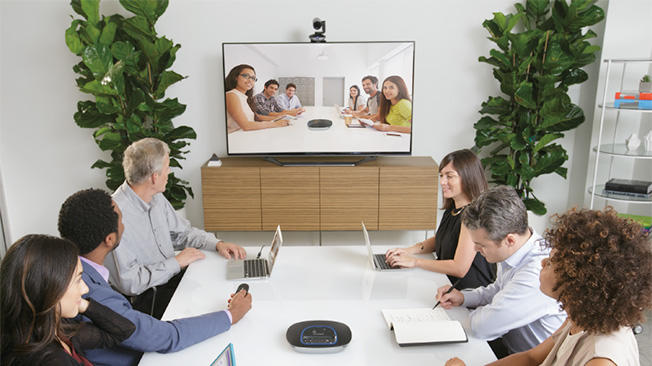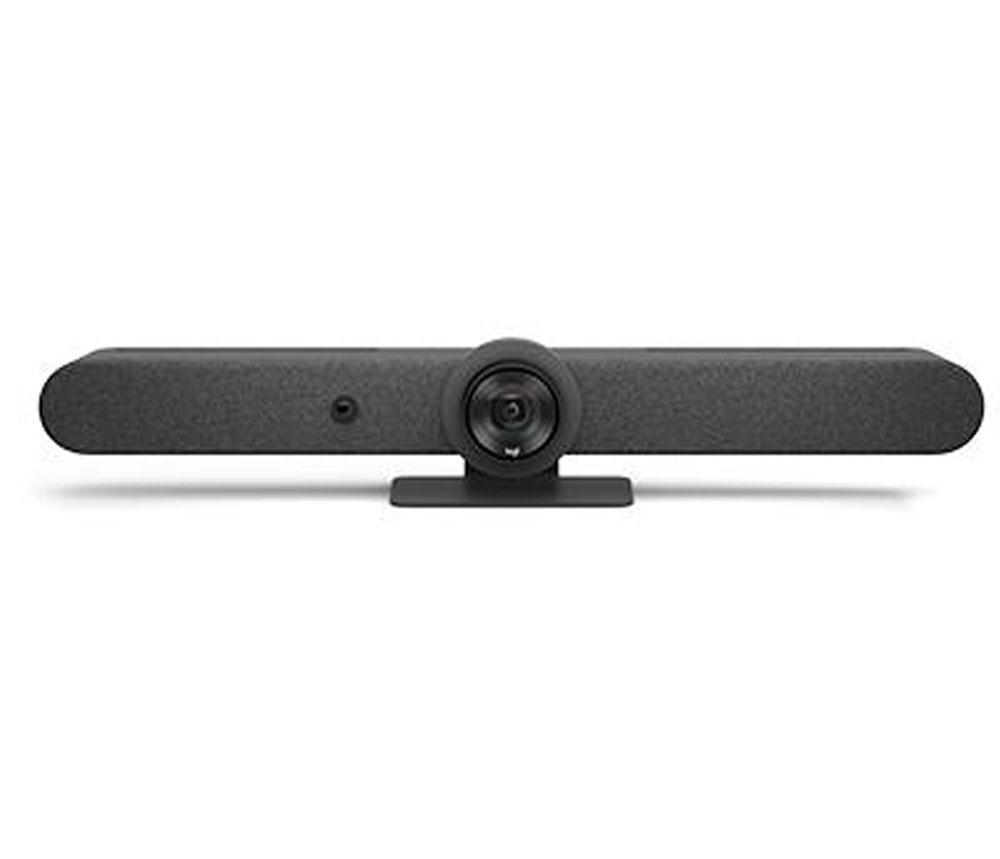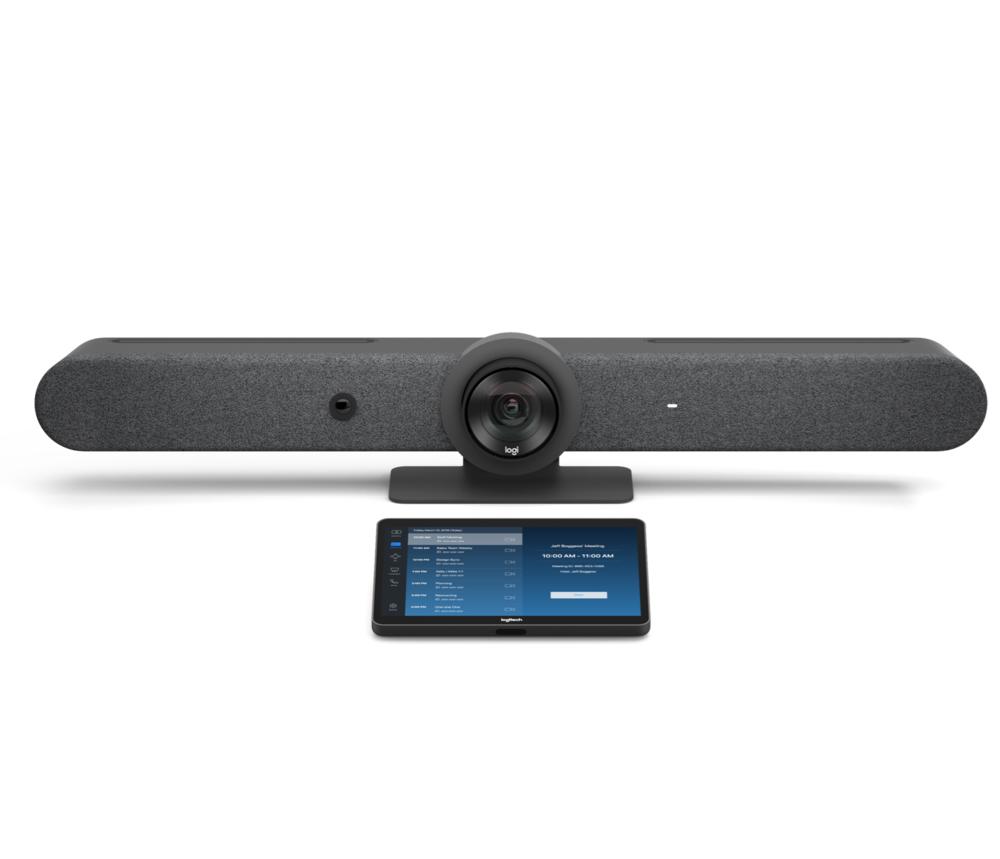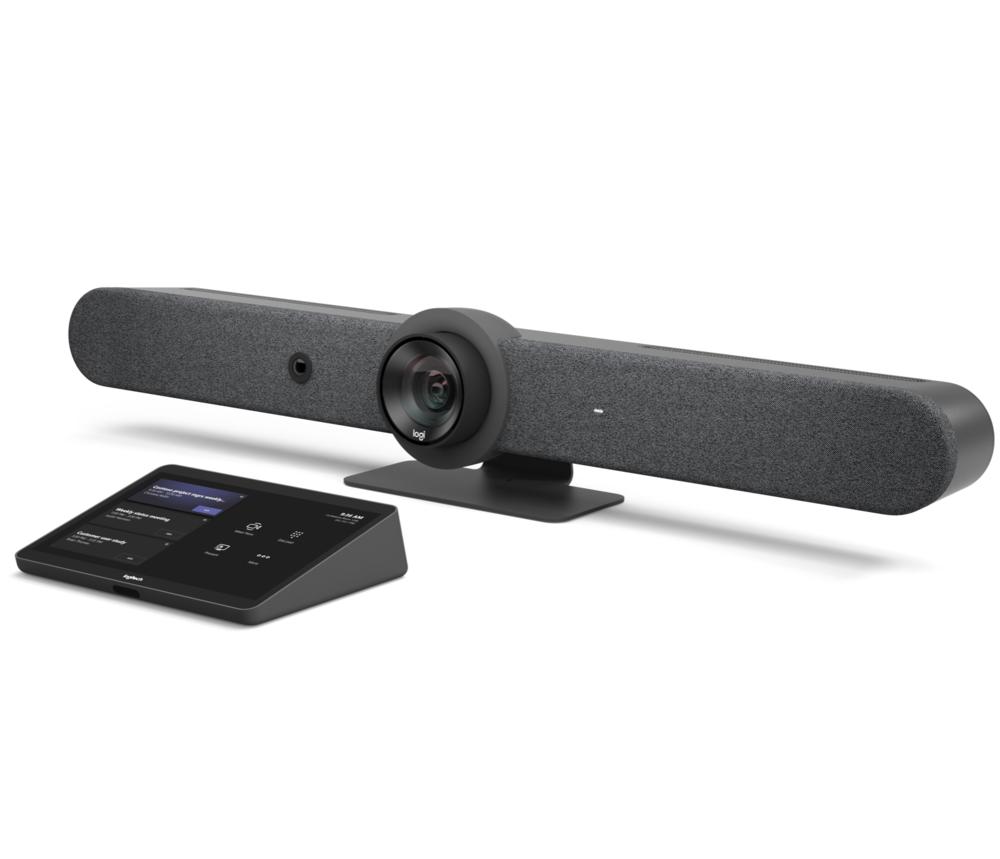Optimize Mid-Sized Meeting Rooms for Video Conferencing
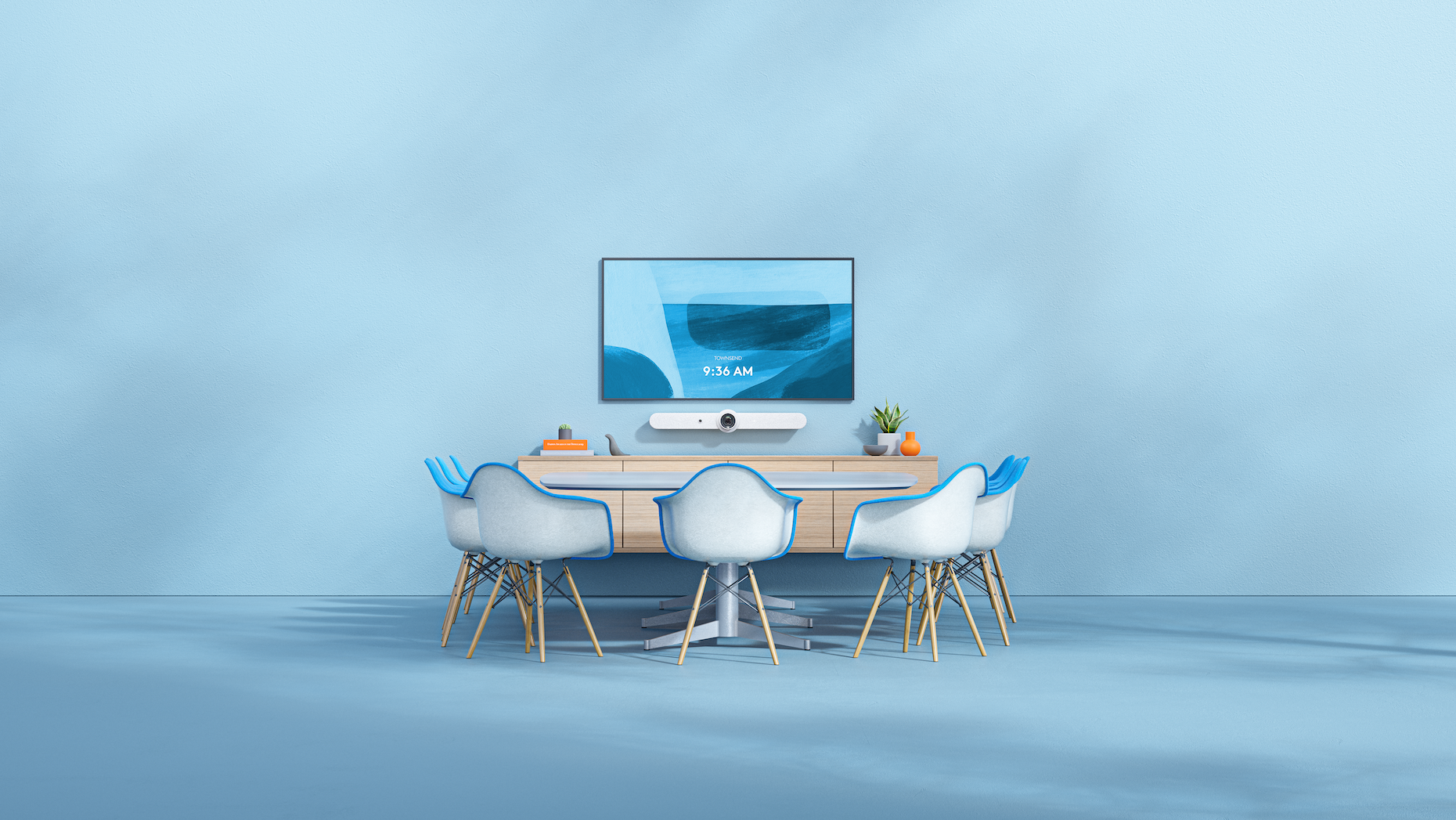
In your organization, it’s likely you have meeting rooms of all sizes. You may have a growing number of huddle rooms or a few large rooms for board meetings, customer presentations, and so on.
But the workhorse of meeting spaces is the mid-sized conference room, which typically has 8 to 10 chairs. A medium room is a good size for small groups of three to four people to spread out as needed. This flexibility is especially important as businesses move to a hybrid workplace model with people transitioning between home and office locations.
Large organizations may have hundreds or even thousands of mid-sized rooms, so scalability is essential. And because these rooms are so important for small-team collaboration, the video conferencing equipment in mid-sized rooms must be simple to operate. It must be effortless for anyone to step into a medium room and start or join a meeting. Productivity is the goal, and the room solution must facilitate collaboration, not hinder it.
To optimize your mid-sized rooms for meetings and video collaboration, here are some criteria to consider.
Room Configuration and Flexibility
Because they fit into this category between small huddle rooms and large conference rooms, mid-sized rooms can vary a lot in the number of chairs, the size of the room, the shape of the table, even the number of tables. For this reason, it’s smart to choose room solutions that are flexible enough to accommodate different sizes and configurations.
For rooms on the smaller end of the scale, you may want a camera with built-in speakers and mics, and that’s sufficient. For rooms on the larger end, you may need multiple mics set up around the room. Be sure your room solution can accommodate both.
Video Bars and All-in-One Video Conferencing Solutions
The type of conference camera you deploy to your medium rooms is possibly the most important consideration.
Some organizations today are opting for a new breed of conference cameras called “all-in-one video bars” that can be used as standalone appliances. Rather than connecting to a dedicated meeting room computer, these all-in-one conference cameras attach directly to the room’s monitor and run the cloud video service on a built-in computing appliance.
Compared to modular video components and external computers, video bars are easier to install and simpler to manage and update. Fewer components means a faster installation with minimal cabling. Another advantage: video bars can be mounted to the wall or directly to the display, conserving table space and staying out of the way.
You may have good reasons for deploying a video conferencing solution with a dedicated meeting room computer configured for your video cloud provider. Consider a camera like Rally Bar that can be used as an appliance or connected to a PC or Mac through its USB port. This approach offers versatility and future-proofing, giving you the option to move between appliance and USB mode as needed. It’s also a great strategy for organizations that support multiple video cloud providers. Plus, Rally Bar was truly purpose-built for the mid-sized meeting room.
Lens Quality
The quality and type of lens in the camera is important and should not be undervalued. Brilliant optics allow people on both sides of a video conference to feel as if they’re together in the same room, even when they’re many miles apart.
Given the range of room sizes and configurations typical of mid-sized rooms, the camera should be capable of capturing and focusing on people both near and far. Some conference cameras use digital zoom, others use optical zoom or a combination of digital and optical. Because meeting leaders tend to sit at the head of the table, the camera’s zoom capability needs to maintain a sharp focus on the far end of the room.
Motorized pan and tilt allow the camera to direct the lens toward meeting attendees, no matter where they position themselves in the room. When appropriate, PTZ can also capture a wide view of one side of the room – for example, when someone is writing on a whiteboard. Adding intelligent automatic framing keeps the focus on the subject without requiring attendees to manually adjust the camera angle.
It’s worth investigating the lens quality and capabilities to ensure you're getting the best camera for your investment.
Audio Design
In meetings, being heard is as important as being seen. Innovations in audio technology continue to improve sound quality for meeting room solutions. For example, beamforming mics and intelligent software can isolate the person speaking, separate out background noise, and minimize the effect of crosstalk.
With video bars – which include speakers, mics, and camera together within the device – audio design is especially critical. Be sure to look closely at how the speakers and mics interact to ensure there isn’t distortion or vibration. Has the vendor invested in its sound engineering?
An expandable sound system is useful for mid-sized rooms. If your meeting rooms vary in size, which is often the case for medium rooms, you will want the option to expand coverage with additional extension mics.
AI and Analytics
Artificial intelligence and analytics are gaining traction for room management. These capabilities can offer valuable insights about which rooms are being used, which sit idle, how many people attend meetings, and so on. Insights like these help you to make more informed decisions about meeting space and efficient use of real estate.
Technical Support
One way you can save headaches for your own IT team as well as meeting attendees is by checking room status remotely and discovering trouble spots before employees do. Consider using an application like Logitech Sync, a free software app that provides a clear, easy-to-read dashboard with the status of all your rooms. Sync also enables remote update of software and firmware from any location.
Employee Experience
Employees want meeting tools that are easy, intuitive, and well designed. A consistent user experience from room to room increases adoption rates. Newer room controllers allow employees to start and stop a meeting with a single tap or use their voice for a hands-free experience.
Employees also want flexibility. With a product like Logitech Swytch, they can pop into a huddle room, connect their own laptop, and instantly present or stream over any cloud video service.
Room Environment
Beyond the camera, lens, and speakers, there are a number of factors to think about when setting or designing mid-sized rooms, including:
Lighting, both natural and artificial
The color of walls and furniture
Types of windows or doors and how they affect lighting and privacy
Artwork, plants, and other items in the background
Other room properties, such as building materials
Going into detail on these topics is beyond the scope of this article. To learn more about designing meeting spaces, from huddle rooms to large conference rooms, see our room guide on Logitech.com.
You May Also Be Interested In
RECOMMENDED PRODUCTS
VIDEO CONFERENCING FOR EVERY SPACE.
Find out more about how Logitech video conferencing products
perform in a business environment.
